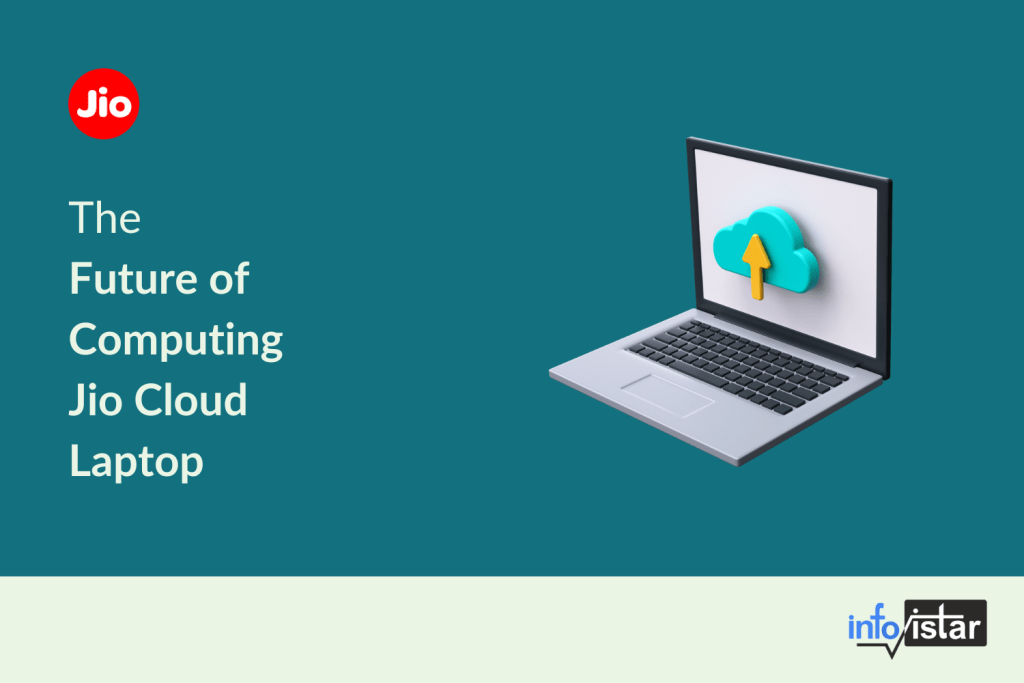In the ever-evolving landscape of technology, Jio, a leading telecommunications company in India, has once again set the stage for innovation with its latest offering – the Jio Cloud Laptop. This cutting-edge device is not just a laptop; it’s a gateway to the future of computing, seamlessly integrating the power of the cloud with the convenience of a portable computer.
Reliance Jio is planning to revolutionize the laptop industry with its new ‘cloud laptop’. This innovative product aims to significantly reduce the cost of owning a laptop, making digital accessibility more widespread.
A New Era of Affordable Computing
Currently, owning a laptop requires an investment of nearly ₹50,000. However, the Jio cloud laptop also referred to as the Jio PC, is expected to be available for around ₹15,000. This drastic price reduction could potentially democratize access to digital resources, especially in a developing country like India.
Jio is preparing to enter the laptop market once again, after the successful launch of their 4G-powered JioBook laptop at INR 16,499. The JioBook operates on the JioOS system. However, the company is planning to release a cloud-based PC that can run on a variety of operating systems, including Windows.
The ‘Dumb Terminal’
The Jio cloud laptop is designed as a ‘dumb terminal’. This means that all the storage and processing will be handled on the Jio cloud. By shifting these resource-intensive tasks to the cloud, the cost of the laptop can be significantly reduced.
JioGamesCloud: Gaming Without Limits
In addition to the cloud laptop, Jio has also introduced JioGamesCloud, a cloud gaming platform. This platform offers an extensive and ever-evolving games catalog for gamers, ranging from AAA Titles to Hyper Casual Games. With JioGamesCloud, users can enjoy a seamless gaming experience on any device, including the Jio cloud laptop.
JioBook: A Step Towards Digital Inclusion
Reliance Jio has already made strides in the laptop market with the launch of the JioBook. Priced at ₹16,499, the JioBook comes with 100GB of free cloud storage on DigiBoxx. This offering aligns with Jio’s vision of expanding its digital ecosystem and making digital resources more accessible.
Key Features
- Jio Cloud Integration: The laptop comes pre-loaded with Jio’s cloud services, providing users with ample storage space for their files, documents, and multimedia content. This integration allows for easy synchronization across devices, ensuring a hassle-free and secure cloud experience.
- Long-lasting Battery Life: Equipped with an efficient battery management system, the Jio Cloud Laptop offers extended battery life, minimizing the need for frequent charging. This is a crucial feature for users who need a reliable device for work or entertainment on the go.
- Collaborative Tools: Jio understands the importance of collaboration in today’s interconnected world. The laptop comes with a suite of collaborative tools, enabling users to work seamlessly with colleagues, classmates, or friends in real time.
The Future of Computing: Final Thoughts
The Jio Cloud Laptop represents a significant step forward in the evolution of computing devices. By embracing the power of the cloud, Jio has created a versatile, connected, and user-friendly laptop that caters to the needs of a modern, on-the-go lifestyle. Whether you’re a professional needing a reliable work companion or a student seeking a portable study solution, the Jio Cloud Laptop offers a glimpse into the future of computing.
Jio is targeting a significant presence in the digital services market, given the vast opportunity, especially in the hybrid work environment. Nowadays, several companies provide work-from-home options, and they require a secure environment for their data assets. Jio intends to offer digital services that provide the same level of security, even when an employee works from home.
Conclusion
With the introduction of the cloud laptop, Jio is poised to disrupt the laptop industry. By leveraging cloud technology, Jio aims to make digital resources more affordable and accessible. This could potentially transform the digital landscape, especially in developing countries like India.

